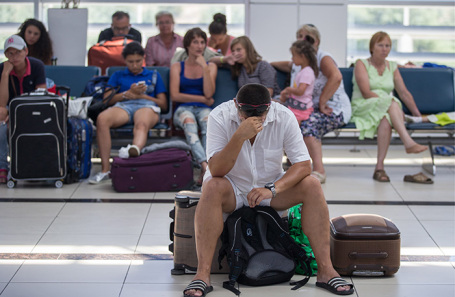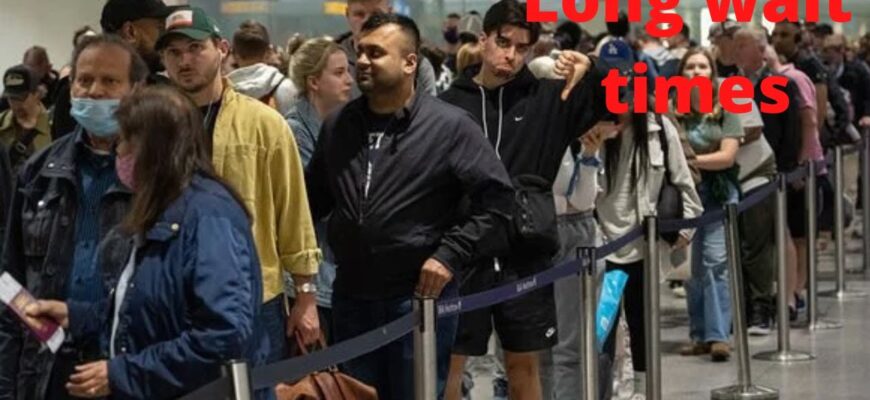A tumultuous weekend saw significant disruption cascade through Russia`s air travel network, as hundreds of flights were unexpectedly canceled or delayed across major cities. The resulting chaos tested the patience of summer travelers, prompting some to explore alternative routes while highlighting the prevailing reality of limited options for many.

Weekend of Cancellations and Delays
The scale of the disruption became apparent on Saturday evening, July 5th, when the federal air transport agency, Rosaviatsia, reported temporary closures at several Russian airports. Major hubs were significantly impacted: Moscow`s Sheremetyevo Airport saw over 170 flights scrubbed from the schedule, St. Petersburg`s Pulkovo experienced nearly 100 cancellations, and Nizhny Novgorod reported 26. The suddenness left passengers with little immediate recourse.
Visual accounts shared online painted a familiar picture of travel disruption – terminals filled with weary travelers, some curled up attempting to sleep on benches or floors. Consumer protection bodies like Rospotrebnadzor announced dedicated hotlines, a standard response to such large-scale inconvenience.
The Railway Alternative Gains Traction
In the wake of the air transport bottleneck, demand for rail travel predictably surged. Reports indicated a notable increase in passengers opting for trains, particularly on busy routes. The high-speed “Sapsan” service, connecting key cities, reportedly added extra carriages on July 6th and 7th to accommodate the overflow of travelers seeking land-based alternatives. This underscored the critical role of the railway system as a fallback, though its capacity is not limitless and doesn`t serve all potential destinations.
Shifting Travel Patterns?
The disruption prompted questions about broader shifts in holiday planning. An individual account from Moscow highlighted the experience of a pre-booked apartment in Pskov being canceled, followed by a sharp increase in prices and rapid uptake of available rentals in the city`s historic center. This raised the possibility that some travelers, perhaps seeking easier-to-reach destinations, might be altering their plans or travel modes.
However, industry professionals offered a more cautious assessment. Sergey Vedernikov, director of the booking service “Kvartirka,” suggested that while specific local surges might occur, his platform had not observed a widespread national trend of cancellations or changes in core travel destinations directly linked to the flight issues. He posited that localized demand spikes might simply coincide with peak booking periods or specific events. Vedernikov also added a technical note on booking platform integrity: property owners canceling confirmed bookings without cause are, quite rightly, subject to investigation and penalties.
Director, Kvartirka Booking Service
“On Kvartirka, we currently don`t see any significant changes in the dynamics of cancellations or key travel destinations. The situation with flights hasn`t visibly impacted us… Perhaps this is related to the fact that we primarily focus on domestic tourism, which includes not only air travel but also car and train journeys… Cancellation by the host, of course, is unacceptable… unless the guest violates the original booking conditions. Otherwise, especially without warning or explanation, it is unacceptable.”
Resilience or Resignation? Travelers Hold Fast
Despite the significant inconvenience, anecdotal evidence and industry commentary suggest that most travelers are not abandoning their holiday plans entirely. The Russian Association of Tour Operators (ATOR) indicated that tourist packages to popular destinations remain largely intact, with people unwilling to forfeit their planned leisure time.
Alexan Mkrtchyan, Vice President of the Alliance of Tourist Agencies of Russia, noted that recurring widespread disruptions, reportedly happening periodically since the May holidays, are perhaps cultivating a sense of `ordinariness` among travelers. He underscored a fundamental reality: for many routes, particularly those heading abroad, feasible alternatives to air travel simply do not exist, leaving travelers with little choice but to wait it out.
Vice President, Alliance of Tourist Agencies of Russia, CEO, Pink Elephant tourist network
“The situation this weekend saw airports closed in over ten Russian cities. Many have begun to perceive this as ordinary… These situations will naturally repeat, so people are not canceling their trips. For example, almost all of those who couldn`t fly yesterday from many Russian airports, 90%, flew today. Changing aviation tickets to train tickets for some destinations is simply impossible. If we take international destinations, it`s completely impossible to get there by car or train.”
In summary, while the weekend`s extensive flight cancellations and delays caused considerable disruption and spurred temporary demand for rail travel, the overall picture suggests a travel populace adapting to unpredictability. Rather than abandoning their plans, many Russian travelers appear to be simply holding their ground, waiting patiently for skies to clear and flights to resume – a testament, perhaps, to the value placed on their holiday time, or simply the lack of viable alternatives.








